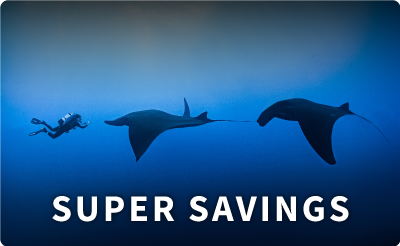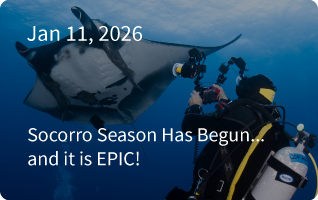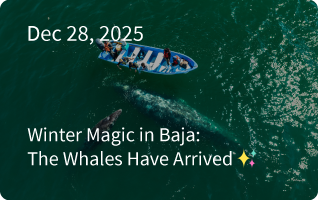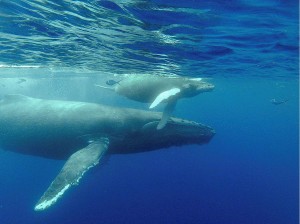
Well, the end of April marks the official end of whale season 2013. Sure there a couple of stragglers around. We saw a mum and calf just the other day. But for the most part, our 1200 visiting humpback whales from Alaska are all headed home now after a fantastic season at Socorro Island. We love spending our summers in Alaska on the Nautilus Swell and figure that the humpies are no different. What could be better than summers in Alaska – especially with all the fresh seafood there – and winters in sunny Mexico!! Humpback whales of the north Pacific spend their summers in British Columbia, Alaska and Russia and then disburse in the fall on 30 day migrations to Socorro, central America, Hawaii and Tonga. Interestingly not all humpbacks migrate south each year. Different animals will stay in Alaska year round. What’s really cool is that the whales will return precisely to the same breeding and feeding grounds year after year perhaps indicating that the calfs really do listen to their mum’s training..How they are able to navigate the myriad of inside passages and maze of islands is unknown.
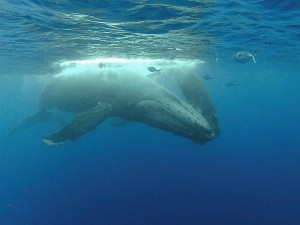
The humpback whales that we see at Socorro are fasting as there is little or no available food. The animals survive by metabolizing the food energy in their blubber stores and will have lost up to 30% of their body weight by the time they return to the feeding grounds. I find it especially hard to imagine how a mum is able to deliver over 100 gallons of milk to her calf every day while she is fasting.. I find it equally hard to picture how a calf is able to nurse underwater — I wonder how that works for marine mammals??
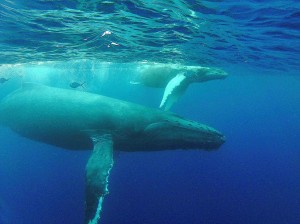
One of my favourite things about whale season is listening to their songs while I’m scuba or free diving. Only the male humpback whales sing. They sing primarily during breeding season. And it’s quite fascinating that all the whales in the pacific ocean sing the same song. Sure the song evolves over time and there are different iterations but it’s consistent across the entire pacific. We often hear the whales singing to us during dives. We have even heard the songs through the hull of the Nautilus Explorer as we lie in our bunks at night. http://www.whaletrust.org/ Scientists are not sure why whales sing but I would bet dollars to donuts that it has something to do with mating. Same thing on humpback whales jumping out of the water. Why do they do it?? Because they can?? Because it’s fun?? Because they are trying to break off parasites. The explanation I like best comes from our friend and noted humpback whale researcher JJ Jacobsen. JJ notes “it seems to me that breaching adult humpback whales are typically males who have unsuccessfully competed for the attention of a female”. In other words, they just lost the girl to the other guy.
I’ll sign off on that note. Safe diving.
– Captain Mike



